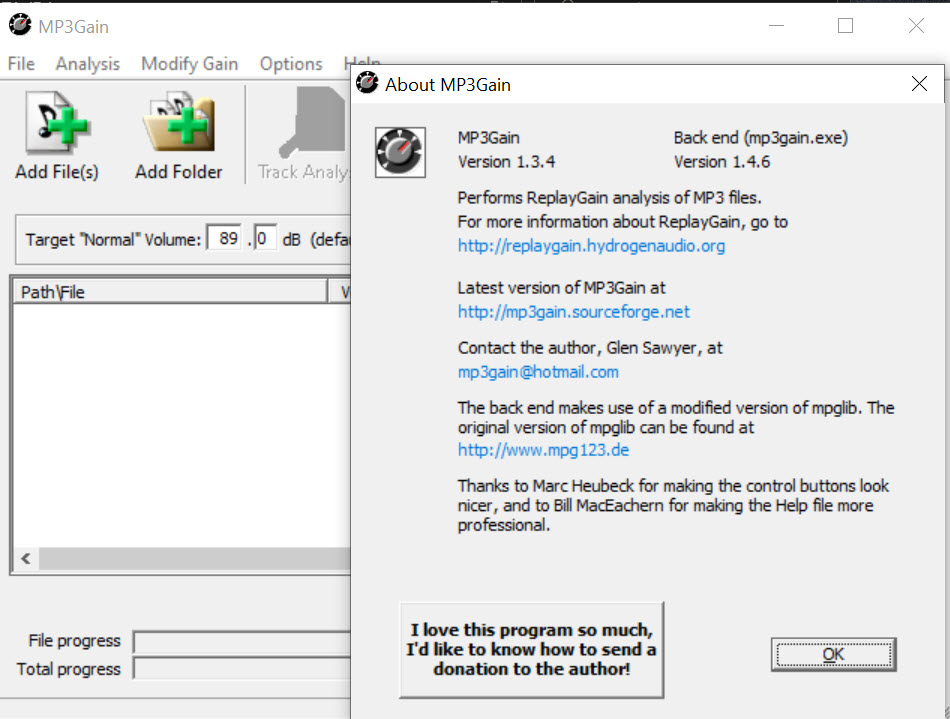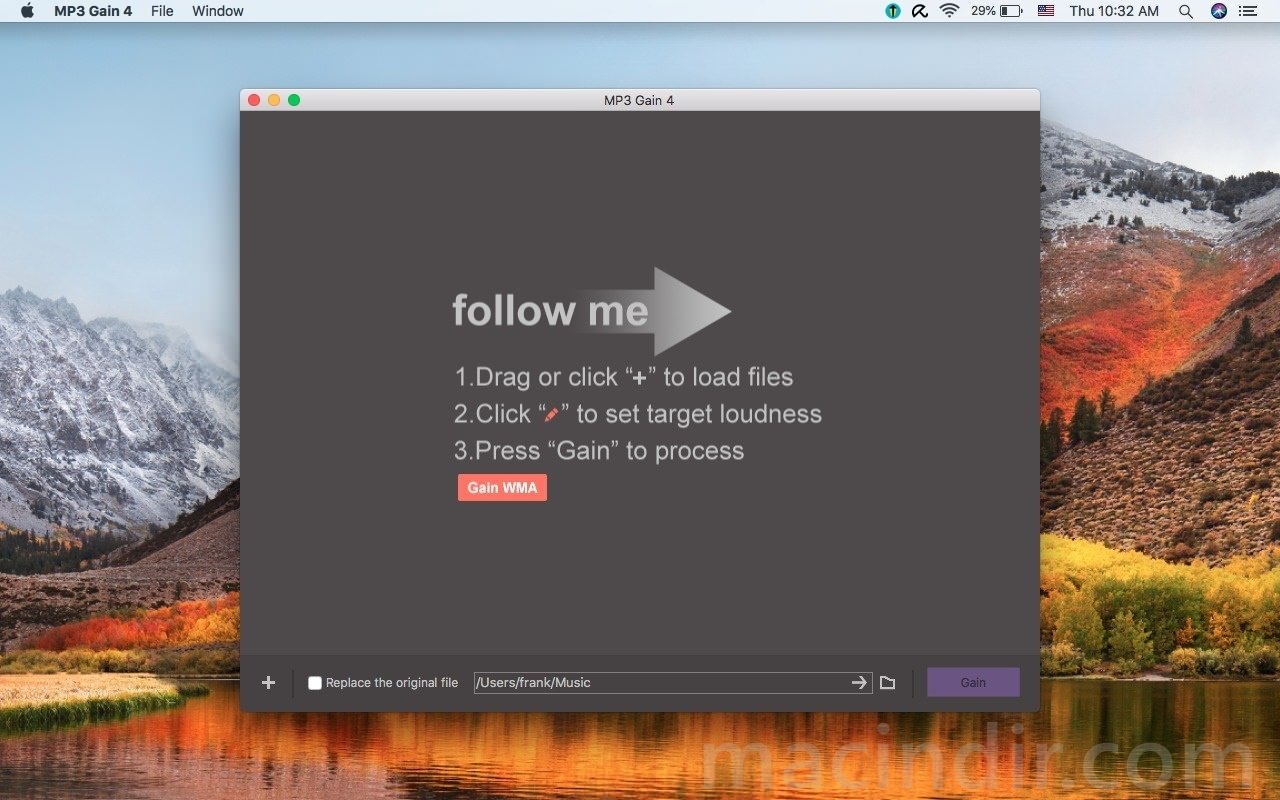

The work that still needs to be done is discussed in the Technical Outline. Help with player and file format support is needed. This proposal was published on July 10 th 2001. Read on to find out more, or see what's new. The Replay Gain proposal sets out a simple way of calculating and representing the ideal replay gain for every track and album. However, there is no consistent standard by which to define the appropriate replay gain which mp3 encoders and players agree on, and no automatic way to set the volume adjustment for each track – until now. The later ID3v2 standard also incorporates the ability to store a track relative volume adjustment, which can be used to "fix" quiet or loud sounding mp3s. It's already possible to store the title, artist, and CD track number within an mp3 file using the ID3 standard. This concept is called "MetaData" – data about data. There is a remarkably simple solution to this annoyance, and that is to store the required replay gain for each track within the track. If we add to this chaos the inconsistent quality of mp3 encoding, it's no wonder that a random play through your music collection can have you leaping for the volume control every other track. Whilst different musical moods require that some tracks should sound louder than others, the loudness of a given CD has more to do with the year of issue or the whim of the producer than the intended emotional effect.

The perceived loudness of mp3s is even more variable. Just enter your email and click "TELL ME MORE.Replay Gain - A proposed standard Replay Gain - A Proposed Standard Introduction The Problem The ideal LP value for maximum playback loudness.When you might choose to ignore LP values.What to do if you see LP values above zero.Which streaming services use compression or limiting.Why LP values are different for each platform.
#ONLINE MP3 GAIN HOW TO#
To help you take maximum advantage of what Loudness Penalty scores can tell you, we've put together a short series of emails to tell you everything you need to know about how LP will affect your music and how to get the best results. We've tried to make the Loudness Penalty site simple and intuitive, but online loudness is a complex topic. Nothing! We love loud, aggressive genres as much as anyone else, but users complain about unexpected changes in loudness, and the streaming services want to avoid this. For more insight into the different ways each streaming service implements the Loundess Penalty, request more information below. This means there is a slightly different Loudness Penalty for each service. We do! Why are there different LP numbers?Įach streaming service chooses their own method of measuring loudness, and how loud the loudest songs should be played (the Distribution Loudness). However, you may decide you’d like to experiment with lower levels to see if you prefer a more dynamic sound. If the results sound good, you don’t need to take any action. Use them to Preview your music and compare with suitable reference material. Streaming services apply loudness normalization so we don’t have to. We call this level reduction the "Loudness Penalty" - the lower the LP numbers, the more your music will be turned down to match other songs.įor example, a Loudness Penalty of -2.4 on YouTube means your song will be played back 2.4 dB quieter than its original loudness. Online streaming services measure loudness, and turn down loud music to avoid "blasting" listeners with sudden changes in loudness. Your file will not be uploaded, meaning this process is secure and anonymous. Simply select any WAV, MP3 or AAC file above, and within seconds we'll provide you with an accurate measurement of the Loudness Penalty for your music on many of the most popular music streaming services, and allow you to preview how it will sound for easy comparison with your favorite reference material. There is no quality lost in the change because the program adjusts the mp3 file directly, without decoding and re-encoding and is an app in the audio & music category.
#ONLINE MP3 GAIN FREE#
But all the streaming services achieve this in different ways, and give different values, which makes it really hard to know how big the Loudness Penalty will be for your music. wxMP3gain is described as A free automatic mp3 volume normalizer.MP3Gain analyzes and adjusts mp3 files so that they have the same volume. We call this reduction the "Loudness Penalty" - the higher the level your music is mastered at, the bigger the penalty could be. To avoid this and save us from being "blasted" unexpectedly, online streaming services measure loudness, and turn down music recorded at higher levels. We all hate sudden changes in loudness - they're the #1 source of user complaints. Online streaming services are turning down loud songs.


 0 kommentar(er)
0 kommentar(er)
